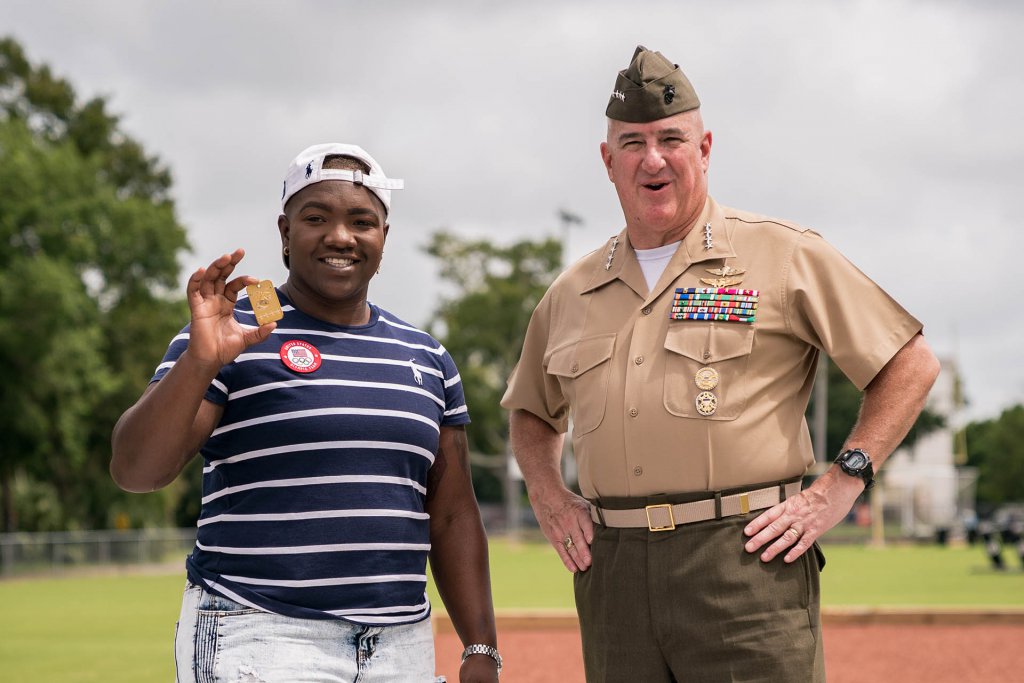As flags placed by members of the cadet Republican society fluttered in the breeze along the Avenue of Remembrance, The Citadel paid homage to the victims of the September 11 terrorist attacks. Flanked by a cadet honor guard, a steel fragment from the World Trade Center was displayed between Mark Clark Hall and the War Memorial for The Citadel community and alumni on campus during Homecoming. The exhibit was sponsored by the School of Humanities and Social Sciences with support from the Fine Arts program.
Michael Varnadore, the campus carillonist, performed “In Memoriam” by John Courter on the Thomas Dry Howie Carillon, and on Daniel Island, a group of 50 cadets from Fourth Battalion waved flags as they ran the 9/11 Heroes Run.

